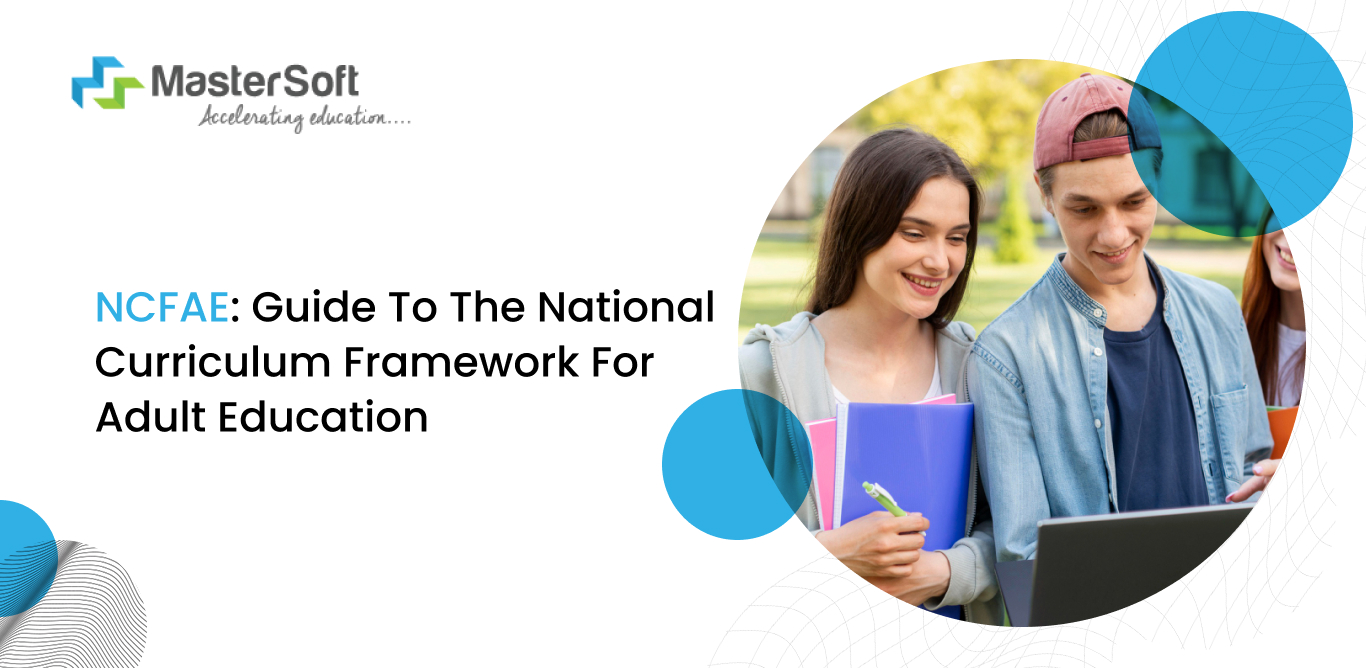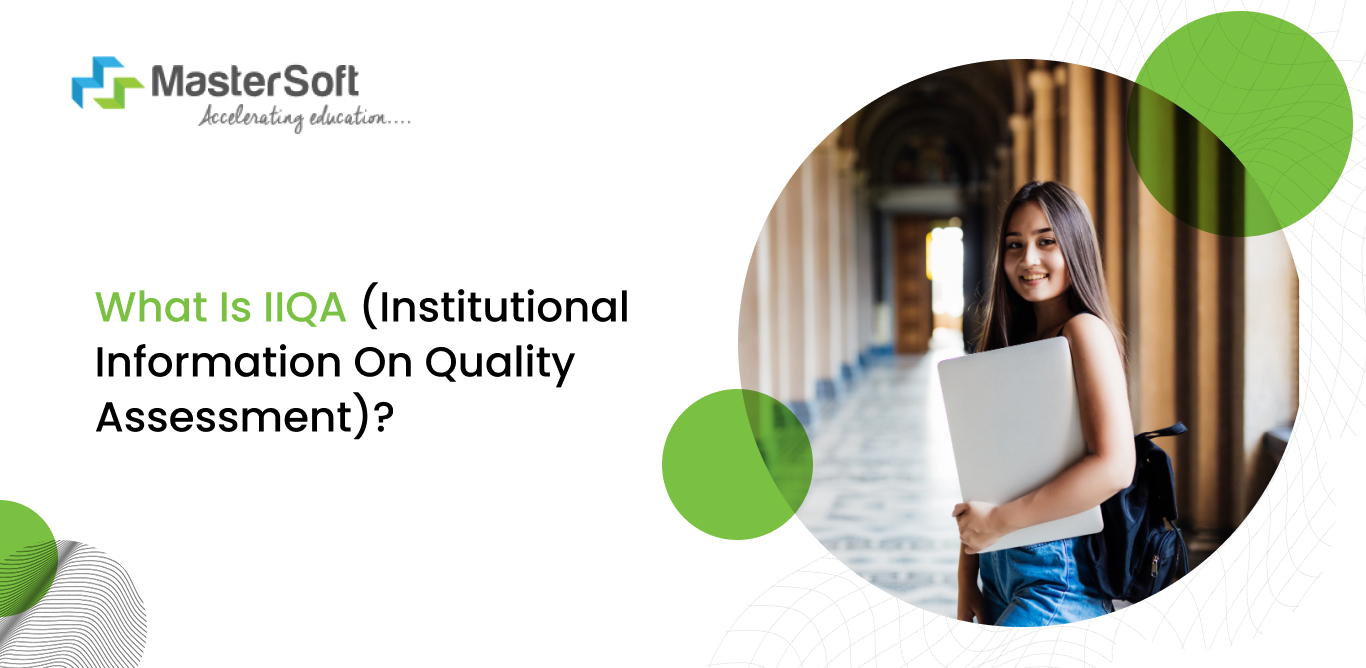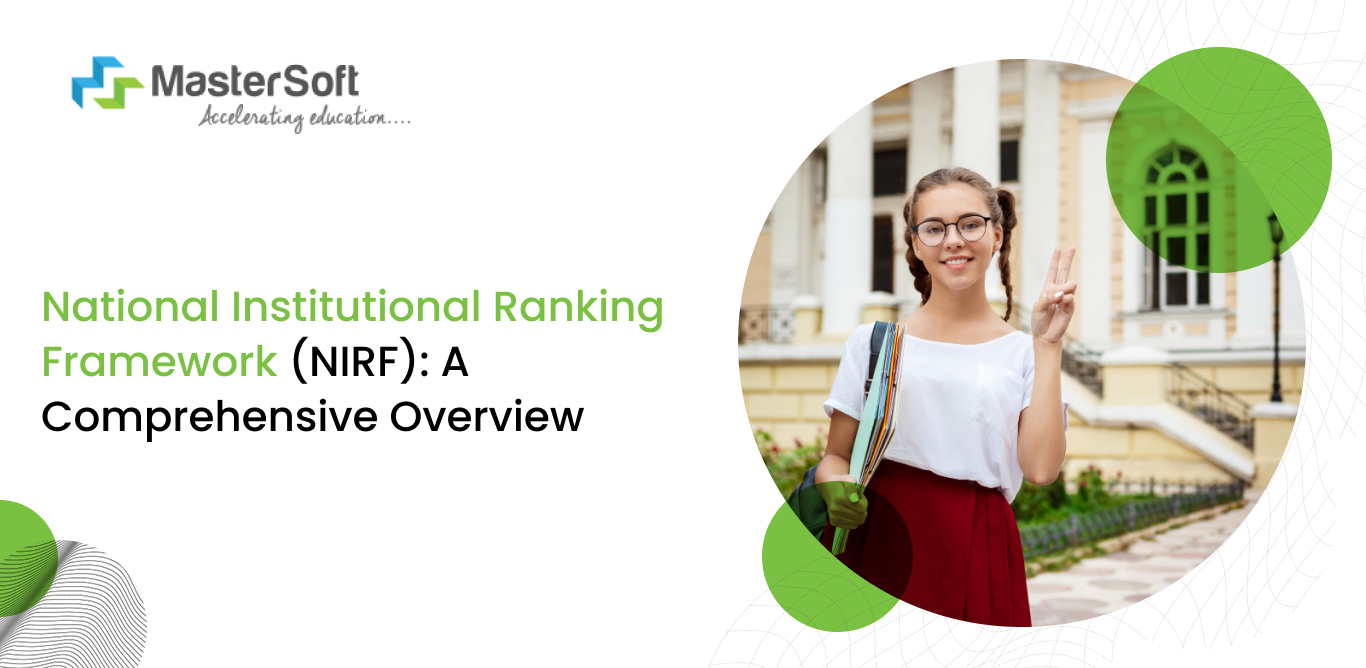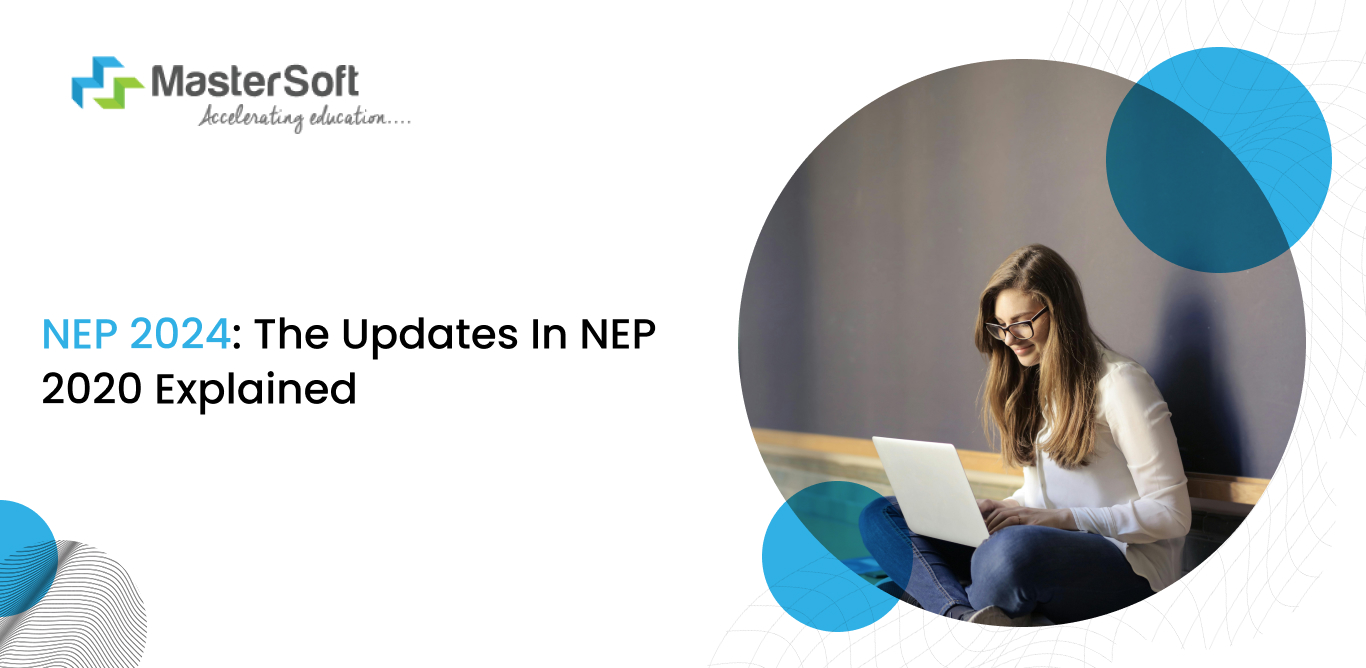20, August 2024
Familial responsibilities, beginning their career or working life early, and losing interest in academics are reasons why individuals discontinue education. At the same time, some may not have the opportunity or resources to pursue basic or further studies.
Nonetheless, people understand the value of education and have an interest in expanding their knowledge and skills. That is where the National Curriculum Framework, designed for adults, serves its purpose. In fact, NCFAE plays an instrumental role in enhancing adult education in India.
What is NCFAE?
NCFAE, or National Curriculum Framework for Adult Education, is a comprehensive programme to plan and develop different learning initiatives for adults. In fact, it acts as a guiding source for educators and policymakers to enhance educational programmes.
Besides, there have been well-planned campaigns and programmes that the government launched intending to promote adult education, such as:
- National Literacy Mission (1988)
- Saakshar Bharat Mission (2009)
- Padhna Likhna Abhiyan PLA (2020)
- New India Literacy Programme (NILP) 2022
- Pradhan Mantri Kaushal Vikas Yojana (PMKVY)
- Pradhan Mantri Kaushal Kendra (PMKK)
- Rozgar Melas
- India International Skill Centre (IISC)
- Standard Training Assessment and Reward Scheme (STAR)
- Polytechnic Scheme
- Vocationalization of Education
- UDAAN for J&K
It is noteworthy to mention that the scheme on Education for All (previously known as Adult Education) is the New India Literacy Programme (NILP). Therefore, people can resume their education, irrespective of whether they are within or beyond the age of formal education.
NCF 2020 (National Curriculum Framework - 2020) - A Complete Guide
Furthermore, the scheme targets all non-literates aged 15 and older and emphasises the following:
- Foundational Literacy and Numeracy
- Critical life skills (which include financial literacy, digital literacy, legal literacy, healthcare and awareness, childcare and education, family welfare, etc.)
- Basic Education (includes preparatory (classes 3–5), middle (classes 6–8), and secondary stage (classes 9–12) equivalency)
- Vocational Skills (skill development will be a part of the continuous learning process for neo-literates to obtain local employment)
- Continuing Education: This includes engaging in holistic adult education courses in arts, sciences, technology, culture, sports, and recreation, as well as other topics of interest or use to local learners.
- The formation and involvement of SHGs, voluntary and user groups, and other community-based organisations have been encouraged.
NCFAE will provide a roadmap for institutes, teachers, and policymakers to develop a relevant curriculum that aligns with standard outcomes. Moreover, it will help align the directives and objectives of the New India Literacy Programme (NILP).
Core Principles
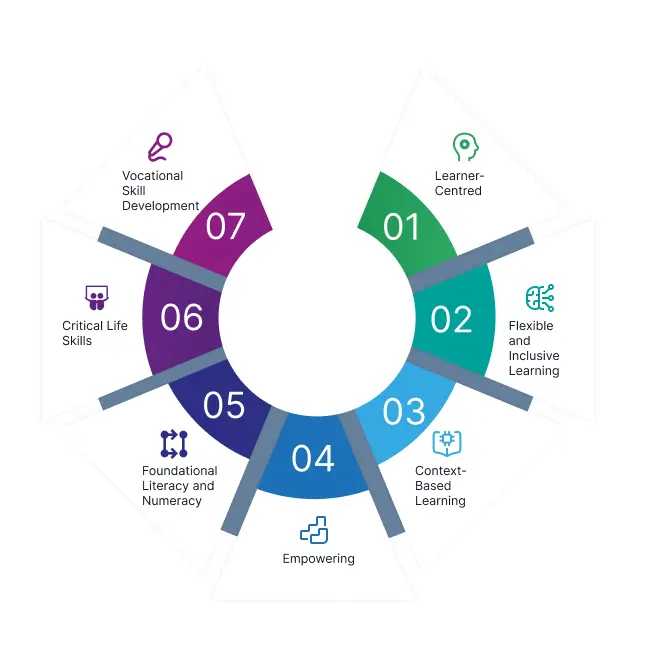
1. Learner-centred
Education approaches have started adopting student-centric mechanisms, thanks to the National Education Policy 2020. Therefore, one-dimensional approaches find little to no place in classroom transactions.
The same shall be the case for adult education, especially when teachers and institutes will face students from all walks of life. Therefore, it will only increase their responsibility to identify the requirements of individual students and facilitate the following:
- Catering to the diverse needs of the learners
- Encourage active student participation through varied exercises.
- Building upon their existing knowledge
2. Flexible and Inclusive Learning
Unequal accessibility to educational resources has been one of the foremost challenges of the Indian education system. Therefore, NCF stresses inclusive education, enabling learners to access quality education irrespective of socio-economic background.
Also, multiple learning pathways make sure that people with different linguistic diversities and learning levels can attain enriching learning experiences. Besides, this flexible and inclusive learning approach accommodates specific learning needs.
3. Context-Based Learning
Standardised teaching and learning materials that have little to no relevance to culture, communities, and traditions make it hard to relate. Therefore, NCFAE uses context-based learning, wherein teachers use real-world and fictional examples in their instructional approaches.
For example, teachers can incorporate activities such as small group discussions or presentations. In effect, it will provide opportunities for students to explain any topic through a real-world example that might reflect their culture and experience.
How NEP 2020 Changes The Nature Of Exams And Assessment For Students?
4. Empowering
Lack of adequate education and skills leads many people to settle for jobs that they don’t like, yet they must continue to earn an income. On the other hand, some people think that after a certain age, it is not possible to take up education or learn new skills.
That is exactly what NCERT aims to debunk through their courses for adult education and lifelong learning. What’s more, one of its main objectives is to enhance the quality of life of individuals by making them aware of their responsibilities.
Furthermore, NCERT will continue to play a pivotal role by assisting the government in smoothly implementing adult education programs. Besides, courses for adult education and lifelong learning include the following:
5. Foundational Literacy and Numeracy
Irrespective of age, the lack of knowledge of foundational literacy and numeracy poses a major obstacle for individuals. Therefore, NCERT highlights the importance of adults strengthening their foundational literacy and numeracy.
6. Critical Life Skills
People may or may not possess a variety of essential life skills; they might possess technical or job-related proficiencies. Hence, the development of critical life skills is one of the important components.
For example, students will learn problem-solving, effective decision-making, communication style, and critical thinking.
7. Vocational skill development
Despite government initiatives related to upskilling and reskilling, youth and educated adults face unemployment. There are a number of factors responsible for such a scenario, including low-quality training and placement issues.
On the other hand, short-term training (STT) and RPL (Recognition for Prior Learning) courses prove to be ineffective. The underlying reasons are inept training providers, assessment agencies’ diligence, etc.
Therefore, an overhaul of vocational training and courses will be possible with the help of NEP 2020.
Basic Education
It includes preparatory, middle, and secondary-stage equivalencies.
Continuing Education
It relates to incorporating holistic adult education courses across all the streams (arts, science, and commerce). Furthermore, include equally beneficial courses in the areas of technology, sports, culture, and other topics of the learner's interest.
Critical Factors in Adult Vocational Education Implementation
The government bodies must work in tandem with their educational counterparts to identify the inefficiencies in the programme before implementation. Simultaneously, it needs to ensure ‘’quality over quantity” to foster vocational and employability skills among the youth.
- Sector Skills Councils (SSCs) accredited assessment bodies must carry out the RPL for accurate evaluation of existing skill sets and knowledge.
- Collaboration with industry has been and will continue to be instrumental in ensuring skills training and building instructional structures. The primary objective is to help students achieve specific outcomes.
- Depending on their aptitude and performance in school, students can either go to a higher educational or vocational stream (German Model).
- Inculcating vocational and skill development within the school and adult educational system by streamlining prerequisites and other requirements.
- Hiring qualified and competent faculty to facilitate effective teacher training so that they acquire relevant competencies.
- The Ministry of Education has designed a programme to encourage literacy among non-literate adults in the nation who are 15 years of age and older to become literate. Its goal is to reach 5 crore non-literate people between 2022–2023 and 2026–2027.
In Conclusion
The NCFAE, or National Curriculum Framework for Adult Education, provides a constructive pathway to provide high-quality educational opportunities. Furthermore, it is a significant initiative that promotes lifelong learning and skill enhancement.
Want to enhance students’ thinking abilities but don’t know where to start? Learn More
Mobile: 08448010216
Email: janki.somani@iitms.co.in

